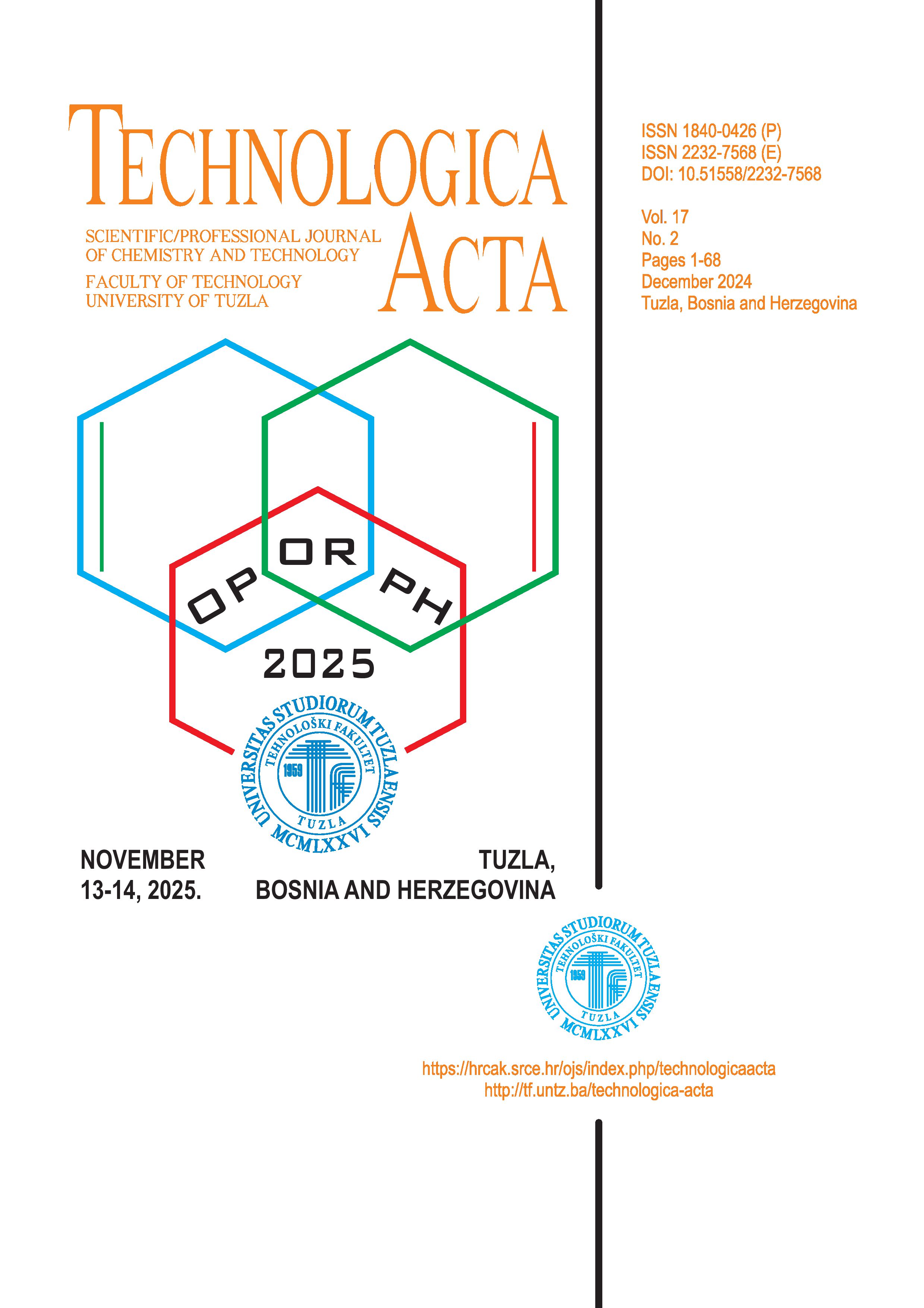Anticancer potential of pink pepper fruit essential oil: study on human cell lines of lung carcinoma (H460), cervical adenocarcinoma (HeLa) and colorectal carcinoma (HCT116)
Keywords:
GC/MS analysis, cytotoxic activity, H460, HeLa, HCT116Abstract
Schinus terebinthifolius Raddi is a plant species belonging to Anacardiaceae family, native to South America, with particular abundance in Brazil, Argentina and Paraguay. It is commonly known as Brazilian pepper tree. All plant parts have been used in traditional medicine for the treatment of several pathologies. In this paper, the cytotoxic effects of the essential oil of the commercial pink pepper fruit from the Tuzla market were investigated. To assess the cytotoxic potential, a tetrazolium salt reduction (MTT) viability assay was performed. The experiments were carried out on 3 human cell lines: lung carcinoma (H460), cervical adenocarcinoma (HeLa) and colorectal carcinoma (HCT116). Using GC/MS, 24 components of red pepper essential oil were identified, of which α-pinene, α-phellandrene, δ-3-carene and D-limonene dominate. The essential oil of the pink pepper fruit showed cytotoxic activity in the case of all tested cell lines under in vitro conditions.
Downloads
Published
Issue
Section
License
Copyright (c) 2025 Emir Horozić, Lamija Kolarević, Suada Cipurković, Merima Ibišević, Lejla Mekić, Melisa Šehić, Ermina Cilović Kozarević, Darja Husejnagić, Edina Huseinović, Maja Pođanin, Enida Karić, Mirela Radin

This work is licensed under a Creative Commons Attribution 4.0 International License.


